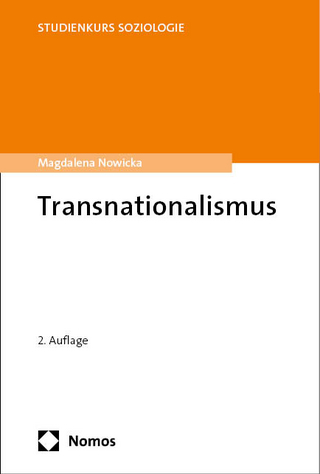
Governing Cyberspace
Rowman & Littlefield International (Verlag)
978-1-78661-495-7 (ISBN)
Cyber norms and other ways to regulate responsible (state) behaviour in cyberspace is a fast moving political and diplomatic field. The academic study of these processes is a varies and interdisciplinary field. However, to date, much of the literature has been organised according to discipline, with rising interests in the field of international law, political science and IR, and international governance. Both the broader field of the study of international cyber security and internet governance, as well as the subfield of norms and state behaviour in cyberspace are relatively young, making their way into specialised journals. This volume brings together researchers from various academic disciplines around the theme of responsible state behaviour in cyberspace. The authors come from disciplines such as international law, IR, business studies, political science and philosophy.
The collection is divided into three parts. The first looks at current debates in and about international law in cyberspace. The second focuses on power politics and the way institutions (international organisations and legal instruments) adapt to the realities of cyber space and digital conflict. It also looks at the normative behaviour of states including China, Egypt and the Gulf States and sub-state actors such as intelligence agencies. The third part takes a critical look at multi-stakeholders and corporate diplomacy. How do global tech companies shape their role as norm entrepreneurs in cyber space and how do their cyber diplomatic efforts relate to their company identity?
Dennis Broeders is Associate Porfessor of Security and Technology and Senior Fellow of the Hague Program for Cyber Norms and the Institute of Security and Global Affairs, of Leiden University. Bibi van den Berg is Professor of Cybersecurity Governance at the Institute of Security and Global Affairs of Leiden University.
Introduction, Dennis Broeders and Bibi van den Berg
Part I: International Legal Approaches
International Law and International Cyber Norms: Continuum or Fragmentation?, Liise Adamson
Cyber Intervention and the Principle of Non-Interventions, Nicholas Tsagourias
Violations of Territorial Sovereignty in Cyberspace, Premslaw Roguski
How Uncertainty About Military Technological Change Compromises International Law, Justin Key Canfil
Part II: Power and Governance: International Organisations, State and Sub-State Actors
A Balance of Power in Cyberspace, Alexander Klimburh
International law in Cyber space: NATO, Adaptation and Cooperative Security, Steven Hill
Developing a Cyber Deterrence Initiative, Tim Maurer
Cybersecurity Norm-Building and Signalling wit China, Geoffrey Joseph Hoffman
Ambiguity and Appropriation: Cybersecurity and Cybercrime in Egypt and the Gulf States, James Shires
The Normative Power of Intelligence Agencies, Iliana Georgieva
Part III: Multi-Stakeholder and Corporate Diplomacy
Non-State Actors as Shapers of Customary Standards of Responsible Behaviour in Cyberspace, Jacqueline Eggenschwiler
Tech Companies as Cybersecurity Norm Entrepreneurs: a Critical Analysis of Microsoft’s Cybersecurity Tech Accord, Robert Gorwa
Cyber Norms Entrepreneurship?, Louise Marie Hurel and Luisa Cruz Lobato
| Erscheinungsdatum | 10.05.2021 |
|---|---|
| Reihe/Serie | Digital Technologies and Global Politics |
| Verlagsort | London |
| Sprache | englisch |
| Maße | 154 x 218 mm |
| Gewicht | 499 g |
| Themenwelt | Sozialwissenschaften ► Politik / Verwaltung ► Europäische / Internationale Politik |
| Sozialwissenschaften ► Politik / Verwaltung ► Vergleichende Politikwissenschaften | |
| ISBN-10 | 1-78661-495-2 / 1786614952 |
| ISBN-13 | 978-1-78661-495-7 / 9781786614957 |
| Zustand | Neuware |
| Haben Sie eine Frage zum Produkt? |
aus dem Bereich


